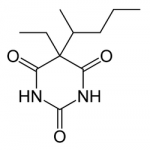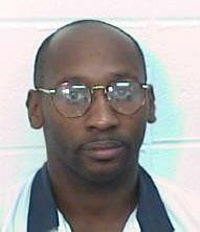Innocence Project on Offensive After Texas Tries to Suppress It Executed Innocent Man
Cameron Todd Willingham wrongfully convicted and executed in Texas
By Staff
Innocence Project
Cameron Todd Willingham was executed in Texas in 2004 for allegedly setting a fire that killed his three young daughters 13 years earlier.
Willingham always claimed his innocence, and the arson investigation used to convict him was questioned by leading experts before Willingham was executed.
Since 2004, further evidence in the case has led to the inescapable conclusion that Willingham did not set the fire for which he was executed.
The Texas Forensic Science Commission issued its report on the convictions of Cameron Todd Willingham and Ernest Willis on April 15, 2011 recommending more education and training for fire investigators and implementing procedures to review old cases (the commission issued an addendum to the report on October 28, 2011).
VIDEO: Nightline interviews and discussions on poor quality of evidence (9 min).
VIDEO: Hopeful family members after creation of forensic panel (4 min).
Forensic panel off Willingham case, attorney general says
By Allan Turner
Houston Chronicle
Abbott ruling limits probe of arson case. Forensic panel was analyzing two investigations linked to execution.
Texas Attorney General Greg Abbott ruled Friday [July 22, 2011] that the Texas Forensic Science Commission has no authority to review two arson investigations that helped send Corsicana auto mechanic Cameron Todd Willingham to his execution.
While current and former commission members described the ruling as “nuanced,” “thorough” and “pretty precise,” the ultimate impact on the commission’s two-plus-year review was not immediately clear.
Commission Chairman Dr. Nazim Peerwani, Tarrant County’s chief medical examiner, said he arranged for copies of the ruling, which he termed
“a good guide going forward,”
to be sent to the panel’s seven members.
“We will debate what impact the opinion has on Willingham at our meeting in September,” he said.
“It’s something we will collectively decide.”
The commission, which in April [2011] issued stern recommendations for improved fire investigation training, had requested Abbott’s opinion.
The panel had delayed deciding whether Corsicana and state arson investigators were guilty of negligence or professional misconduct in the case pending the attorney general’s ruling.
The case centers around a 1991 Christmas-season house fire in which Willingham’s three young children died. Willingham, 36, consistently protested his innocence. He was executed in February 2004.
Three professional reviews of the arson investigations — including one authorized by the forensics commission — found fault with the probes.
Shortly after the Corsicana investigations, the National Fire Protection Association issued arson-investigation standards that rendered many earlier procedures obsolete.
The three professional reviews focused on the arson investigations and drew no conclusions on Willingham’s guilt or innocence. Likewise, the Forensic Sciences Commission’s review focused solely on the quality of the investigations.
Until the commission hired its own legal adviser in December, a member of Abbott’s staff attended the panel’s meetings and offered it legal advice.
Abbott on Friday ruled the commission lacked authority to launch investigations of forensic laboratories that were not accredited at the time of the incident. At the time of the Corsicana fire, the state had no mechanism for lab accreditation.
Restriction on evidence
The attorney general also held that while the commission can investigate cases pre-dating its Sept. 1, 2005, creation, it cannot review evidence that was tested or introduced into evidence before that time.
Williamson County District Attorney John Bradley, who headed the commission until recently, said Abbott’s ruling mirrored his own assessment of the case.
“I’m not on the commission, so I don’t know what it will do,”
he said, adding that, given Abbott’s ruling, moving forward with the investigation
“would really threaten the rule of law.”
Through his press secretary, Katherine Cesinger, Gov. Rick Perry said Abbott’s ruling will clear the way for the commission to
“focus on fulfilling the important role that the Legislature has assigned to it.”
Steve Saloom, policy director of the New York-based Innocence Project, whose formal complaint launched the investigation, said the ruling should not affect the commission’s investigation.
“The Willingham allegation has always been about the fire marshal’s continued failure – it continues to this day – to inform the criminal justice system that the analyses often used in Texas to determine arson were long ago proved invalid,” he said.
State Sen. Rodney Ellis, D-Houston, concurred, saying
“nothing in this attorney general’s opinion prevents the Texas Forensic Science Commission from completing its report and ruling that the fire marshal was negligent when it failed in its duty to correct the flawed arson science that was used in numerous arson cases.”
Questions about the Willingham arson investigations arose days before his execution, when Austin fire expert Gerald Hurst reviewed them at the request of the accused man’s cousin.
‘Mystics or psychics’
Hurst found the arson sleuths’ work flawed, but his report was not sufficient to save Willingham’s life. Later, a five-expert panel assembled by the Innocence Project and commission-hired Baltimore fire expert Craig Beyler also ripped the earlier investigations.
Beyler said the state’s detective work was
“characteristic of mystics or psychics.”
In a later appearance before the panel, Ed Salazar, a lawyer who is second-in-command at the Texas Fire Marshal’s Office, defended his investigator’s work, saying it was sound then and is now. The commission, he charged in a thinly veiled thrust at the Innocence Project, had fallen under the influence of an outside group with an “agenda.”
In late September 2009, two days before Beyler was to address the panel, Perry removed then-chairman Sam Bassett, an Austin lawyer, and two other members, saying their terms had expired.
With Bradley in the chairman’s seat, commission sessions frequently degenerated into verbal wrangles. Last summer, commissioners rejected a Bradley-favored final report that stopped short of finding negligence.
At another point, they criticized the chairman for asserting Willingham had been a “guilty monster.”
Texas lawmakers in May refused to ratify Perry’s nomination of Bradley for a second term as chairman.
State Fire Marshal resigns as arson inquiry begins
By Brandi Grissom
Texas Tribune
The Texas state fire marshal who defended the agency’s work in the Cameron Todd Willingham arson investigation quietly and hurriedly resigned in December [2011] after seven years on the job.
Paul Maldonado’s one-sentence, hand-written letter of resignation, dated Dec. 12, comes just as the fire marshal’s office, in conjunction with the Innocence Project of Texas, embarks on an unprecedented review of arson cases in the wake of the Texas Forensic Science Commission’s protracted examination of the Willingham case.
Asked why Maldonado resigned, spokesman Jerry Hagins said the agency does not discuss personnel issues.
“The personnel change won’t affect the work of the State Fire Marshal’s office,” Hagins wrote in an email.
In October, after discussions with the Texas Forensic Science Commission and the Innocence Project, Maldonado had agreed to cooperate with a review of old arson cases to determine whether faulty science might have led to wrongful convictions. At the commission’s meeting on Friday, an update is expected on the progress of the review.
The agreement came after more than two years of heated controversy at the science commission over the Willingham case.
Willingham was executed in 2004. He was convicted of arson in the 1991 fire that killed his three daughters.
Several scientists who reviewed the evidence shortly before and after Willingham’s execution had concluded the deadly blaze was not intentionally set.
And the New York-based Innocence Project asked the Forensic Science Commission to review the scientific methods used by the State Fire Marshal’s Office that led to Willingham’s conviction.
The commission in 2008 agreed to investigate the case and became embroiled in a political battle over Willingham’s innocence or guilt and the fairness of the state’s implementation of the death penalty.
Finally, in a report released last year, the commission agreed that the arson science used to secure Willingham’s conviction was faulty. And it recommended a review of other arson cases that the State Fire Marshal’s Office investigated.
Despite the many scientific reports questioning the State Fire Marshal Office’s work, Maldonado, who became fire marshal in December 2004, defended the Willingham investigation.
Lynn Robitaille, general counsel at the commission, said Maldonado’s departure would not affect the arson case review, which is already under way.
“I think it’s all systems go,”
said Jeff Blackburn, general counsel for the Innocence Project of Texas, which is spearheading the review.
He said his group has already sent questionnaires to more than 1,000 inmates in Texas prisons on arson-related charges. Once those are returned, he said, Innocence Project staff will begin sifting through the cases to determine which ones warrant a deeper vetting.
“We’re way past the talking stage, and we’re in the doing stage,” Blackburn said.
He expects only a handful of those arson cases will present serious questions about whether faulty science was used to obtain the conviction.
While the State Fire Marshal’s Office will have to sort out its personnel issues, Blackburn said that for now the leader’s departure wouldn’t affect the continuing work.
“My experience with Mr. Maldonado was he was a very open-minded guy and genuinely committed to improving forensic science and arson investigation in this state,” Blackburn said.
“I hope the next fire marshal will be as open-minded as Paul was.”
References:
Innocence Project
http://www.innocenceproject.org/Content/Cameron_Todd_Willingham_Wrongfully_Convicted_and_Executed_in_Texas.php
Houston Chronicle
http://www.chron.com/news/houston-texas/article/Forensic-panel-off-Willingham-case-attorney-2079876.php
Texas Tribune
http://www.texastribune.org/texas-dept-criminal-justice/cameron-todd-willingham/state-fire-marshal-resigns-arson-inquiry-begins/
Sources: Innocence Project | Houston Chronicle | Texas Tribune | YouTube | Haiti Chery








Comments
Innocence Project on Offensive After Texas Tries to Suppress It Executed Innocent Man — No Comments